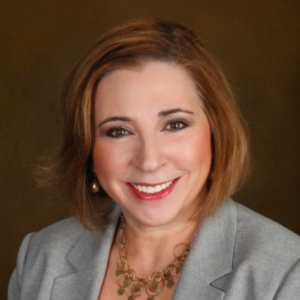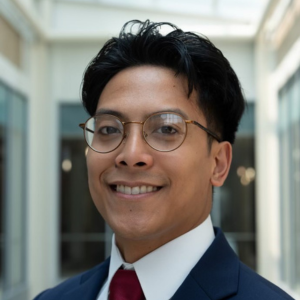Five projects submitted by faculty, staff, and trainee members of the University of Colorado Department of Medicine (DOM) have been awarded grants in the inaugural round of the department’s new Diversity, Equity, Inclusion, and Justice (DEIJ) grant program.
“This pilot program was designed to support projects that further DEIJ efforts among our local departmental community and have the potential to inspire change in academic medicine and patient care,” said the grant announcement from Sonia Flores, PhD, the DOM’s vice chair for Diversity and Justice; and Vineet Chopra, MD, MSc, the DOM’s chair.
In an interview, Flores said creation of the DEIJ grant program followed the formation two years ago of a DOM diversity council with representation from each division. “The idea was to design specific approaches and programs to infuse DEIJ across all of the divisions, so that our activities are harmonized and well-integrated,” she says.
A subcommittee of the Diversity Council developed the grant program’s guidelines and review criteria after many meetings. Originally, $10,000 was budgeted, and it was anticipated there would be one or two recipients, Flores says. “But we got so many outstanding applications that it was very hard to choose only two. I’m so happy that Dr. Chopra was able to come up with more money than was originally budgeted, and he agreed to up the budget for the first year to $21,500.”
Seeking sustainable projects
Areas of focus for the grants include:
- Addressing bias in training, hiring, support, and promotion in the DOM.
- Addressing disparities in health care delivery or outcomes.
- Community outreach with traditionally marginalized groups.
- Advocacy for health promotion or social justice at the community, city or state level.
“We're looking for projects that can be sustainable and create an infrastructure that didn't exist before, not a one-off,” Flores says. It’s hoped that recipient projects will attract money from outside funding agencies, and that the DEIJ program will draw philanthropic donor funds for additional grants going forward.
Eleven “incredibly diverse” projects were submitted in the first round, she says. “They covered the gamut from making changes for trainees, faculty, and patients to the hospitals and the community. That was heartening. People put a lot of energy and creativity into their projects.”
Applications for the next round of grants will be accepted in fall 2024.
Addressing language barriers
Among the projects to receive one of the initial rounds of grants was one submitted by Alfonso Roque, MS, clinical research coordinator for the DOM’s Division of Hematology; and Maria Amaya, MD, PhD, an assistant professor in the division.
Entitled “Improving Clinical Trial Awareness and Accrual of Underrepresented in Medicine Populations by Addressing Language Barriers,” the project’s stated goal is “to better educate patients and enhance feelings of support and trust through the creation of disease-specific videos in English and Spanish that provide an overview of hematologic diseases and relevant clinical trial processes.”
“Our project was built off the idea that low-English-proficient patients are not well represented in clinical trials – nationwide, about 12% in vaccine trials and as low as 3% in cancer trials,” Roque explains in an interview. “This makes clinical trials and research difficult to extrapolate for these populations, so we want to find a way to establish a level of understanding and build trust in these communities to allow them to feel like they can participate in trials overall.”
Hopes for expansion
The project’s initial focus is creating bilingual videos on lymphoma, Roque says. “These videos will focus on helping a patient understand their specific disease, their prognosis, what their life would look like with different standards of care treatments, and then introduce them to clinical trials in general.”
Roque says the DEIJ grant was crucial to getting his and Amaya’s project off the ground. “This project wouldn’t have come to fruition without this seed funding. We now have the opportunity to greatly impact the communities I call home.”
If survey data demonstrates that community members are receptive to the project, Roque hopes to expand it to encompass multiple diseases and additional languages.
Other projects receiving grants
The other projects receiving grants in the DEIJ program’s first year are:
- Clinician Survey to Identify Variation in Provider Care Practices During the Mechanical Ventilation Care Pathway Based on Patient Intersectional Identity, submitted by Gwenyth Day, MD, fellow, Division of Pulmonary Sciences and Critical Care Medicine – A study to identify whether variation in provider care practices contribute to intersectional variation in mechanical ventilation outcomes, uncover potential mechanisms of disparate outcomes and identify interventions for future work.
- LGBTQ+ Provider Development Series, submitted by Dante Mesa, MD, senior instructor; Scott Saunders, MD, assistant professor; and Adam Meyer, MD, assistant professor; all Division of Hospital Medicine – To establish a localized LGBTQ+ community within the DOM to strengthen a sense of unity, this project will focus on networking and community building through monthly meetings. Fostering a sense of inclusion in the workplace can enhance contentment, fortitude, and reduce the likelihood of experiencing burnout.
- Cultural and Communication Barriers to End-of-Life Discussions for Spanish-Speaking Patients with Limited English Proficiency, submitted by Prateeti Khazanie, MD, MPH, associate professor, Division of Cardiology; and Kaitlyn McLeod, resident, Division of General Internal Medicine – A project to understand the experiences of Spanish language interpreters involved in end-of-life discussions with Spanish-speaking patients who have limited English proficiency in order to design interventions that improve communication between patients and their care teams.
- Expanding the Appetite for Faculty Professional Development through Bite-Sized Skill Sessions; A Pilot Program to Improve the Clinical Learning Environment for All, submitted by Melissa New, MD; and Rachel Quaney, MD, M.A.Ed; both assistant professors, Division of Pulmonary Sciences and Critical Care Medicine – A new approach for faculty professional development through bite-sized skill development delivered in a peer-based setting with a focus on improving the clinical learning environment, optimizing faculty-fellow feedback conversations, and mitigating bias.


